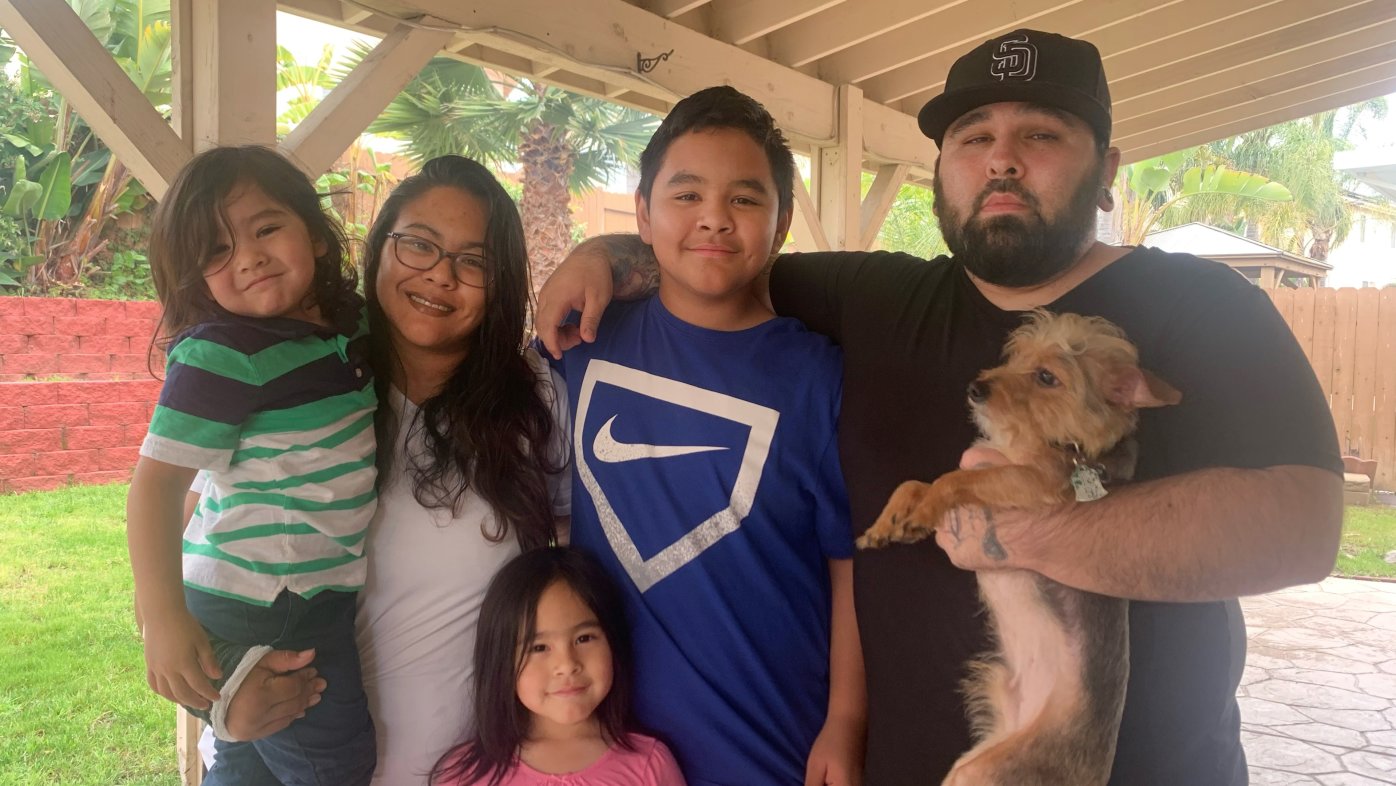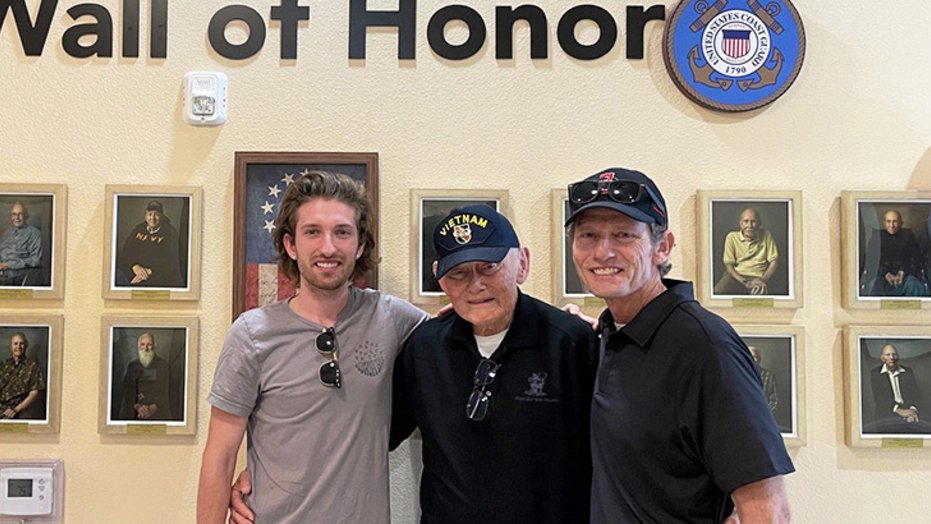
ECMO treatment gives woman a second chance at life (video)
Brandi Garcia’s severe asthma attack turned life-threatening. She credits ECMO and her Sharp caregivers for saving her life.
The main dining room of Westmont of La Mesa senior living community was abuzz with patriotic music and the hum of residents waiting patiently to honor some of their neighbors. Twenty military veterans living at Westmont were honored on June 14, also known as Flag Day, for their service.
The celebration also served as the formal debut of Westmont's Veterans Honor Wall, which features dignified portraits of the veterans. The wall is sponsored by Sharp HospiceCare, and is an extension of its
We Honor Veterans program, focused on improving care for veterans, as well as recognizing the important contributions they have made through their military service.
"Having our pictures displayed and being recognized this way makes me feel good," says Alvin Benson, who served in the U.S. Navy for 4 years.
Having his photo taken brings back vivid memories. Alvin recalls his younger years when he was stationed near Point Barrow, Alaska, serving as a hospital corpsman, second class.
"There was one time we were on the ship and it was rocking, and we were operating on a man's brain," he recalls. "Every time the ship swayed, our instruments rolled to the floor."
Alvin remembers another time on the island of Formosa (Taiwan), where he was providing medical aid and supplies to residents. A particular moment sticks in his mind.
"I was dressing a baby that was just born, I had even cut the cord," he says. "But the mother already had 6 kids and could not afford to take care of her newborn. So I gave the baby away to another woman. The ship was no place for a baby."
Alvin, along with his fellow veterans living at Westmont, each have unique stories across different service branches and ranks — stories that often come to mind on special occasions, such as the wall commemoration ceremony.
But these celebrations can also stir complex emotions, especially when tied to wartime. Doug "GD" Beach served as a platoon sergeant in the U.S. Army Special Forces, also known as the Green Berets. The reserved, 85-year-old, was 24 when he joined the military. He spent a part of his service in Southeast Asia, gathering reconnaissance across enemy lines and engaging in what he called "hide-and-go-seek fighting."
He received a Purple Heart for his time in combat. During this time, Doug's femur bone was smashed, among other injuries seen and unseen, which required him to stay in a hospital for 6 months.
When asked about how he felt about the Veterans Honor Wall and being recognized for his service, he says, "I think it's great. I didn't get this kind of reception coming back from Vietnam. They wouldn't even let us wear our uniforms when we came back, so that people would not know we were soldiers. It was a different time, but I would still do it over again if I got the chance."

Veteran Doug “GD” Beach poses with his son and grandson in front of the Veterans Honor Wall at Westmont of La Mesa senior living community.
Regardless of where years and experience may have taken these veterans during their military service, most who attended the ceremony agree that the Veterans Honor Wall is a respectful tribute to the sacrifices these individuals have made.
"Veterans are the strength of our country," says Teressa Vaughn, consultant for Sharp HospiceCare and a 25-year veteran of the U.S. Army. "They have protected our rights, our land, our values and our beliefs. No matter which branch or years served, committing yourself and raising your hand to serve is a selfless act for which we all should honor."
Learn more about Sharp HospiceCare's We Honor Veterans program.

The Sharp Health News Team are content authors who write and produce stories about Sharp HealthCare and its hospitals, clinics, medical groups and health plan.

Teressa Vaughn is an Advance Care Planning consultant for Sharp HospiceCare.
Our weekly email brings you the latest health tips, recipes and stories.